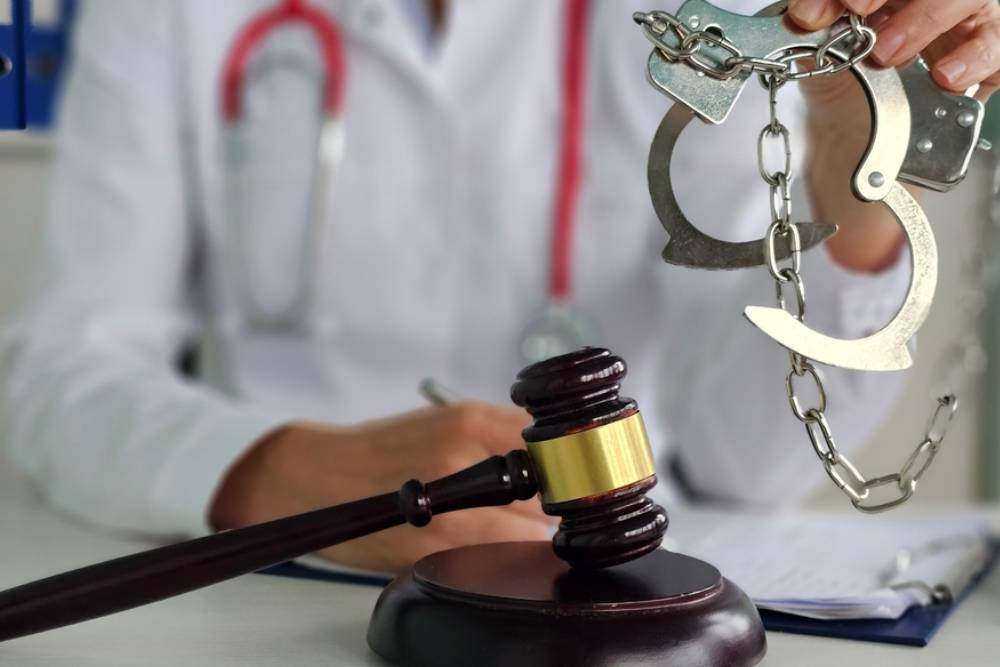Can You Sue a New York Hospital for a Doctor’s Mistake?
By seriousl August 4, 2025
 Yes. In New York, a hospital can be liable for a physician’s malpractice in two main ways. Which path fits your case turns on facts like how you entered care (emergency room vs. a private office), who controlled treatment decisions, and what the hospital told you about the provider’s role. A top-rated medical malpractice lawyer can map those facts quickly so evidence is preserved and deadlines are met. For a fast, local review with Poissant, Nichols, Grue, Vanier & Babbie, P.C., call 518‑483‑1440.
Yes. In New York, a hospital can be liable for a physician’s malpractice in two main ways. Which path fits your case turns on facts like how you entered care (emergency room vs. a private office), who controlled treatment decisions, and what the hospital told you about the provider’s role. A top-rated medical malpractice lawyer can map those facts quickly so evidence is preserved and deadlines are met. For a fast, local review with Poissant, Nichols, Grue, Vanier & Babbie, P.C., call 518‑483‑1440.
Two Paths to Hospital Liability
When a doctor’s error causes harm, New York law may allow you to hold the hospital responsible. The below shows the two most common routes and what evidence typically matters.
- Vicarious liability (respondeat superior / apparent agency): The hospital can be responsible for a physician’s negligence if the doctor is an employee acting within the scope of duties, or if a reasonable patient would believe the doctor was a hospital provider (often true in ER care).
- Direct liability: The hospital may be liable for its own conduct—unsafe policies, inadequate supervision, or credentialing failures—that contributed to the injury. Although “credentialing file” materials are protected by statute, liability can still be proven with outside evidence such as records, testimony, and public sources.
Many cases pursue both theories. The right approach turns on intake paperwork, how care was presented to you (hospital provider vs. private doctor), and what the hospital did to staff, supervise, and vet the clinicians involved. Gathering records quickly helps determine which path fits and preserves your leverage.
When the Doctor Looks Like the Hospital’s Doctor
New York courts recognize that patients who come to a hospital for care—not for a particular private physician—reasonably assume the treating clinicians are the hospital’s agents. In Hill v. St. Clare’s Hospital, the Court of Appeals discussed circumstances where a hospital may be responsible for physicians it holds out as its own.
Earlier, Mduba v. Benedictine Hospital allowed hospital liability where control and the appearance of hospital-provided care supported vicarious responsibility. Recent decisions reiterate that a hospital is generally not vicariously liable for a private attending chosen by the patient—but it can be when the patient seeks treatment from the hospital itself (e.g., an ER) and the facts show apparent agency.
For injured patients searching for a skilled doctor malpractice lawyer, these distinctions shape who you can sue and in what forum. Early legal analysis helps capture the paperwork and intake records that show how the hospital presented the provider’s role.
Direct Claims Against the Hospital
Hospitals owe duties independent of any one doctor: adequate staffing, safe policies, and careful vetting of the clinicians to whom they grant privileges. Claims for negligent hiring, retention, or supervision turn on what the hospital knew—or should have known—about a provider’s competence and whether the hospital’s own conduct helped cause the injury.
New York law protects the confidentiality of peer‑review and credentialing materials (Public Health Law § 2805‑m), which means plaintiffs often prove these claims through external sources (e.g., prior lawsuits, licensing information, depositions). Courts that address negligent credentialing note the privilege but still allow direct‑negligence theories to proceed when supported by non‑privileged evidence.
If you’re weighing a lawsuit, your personal injury attorney needs to build a record of hospital‑level fault, work with counsel who knows how to obtain and use admissible sources outside the privileged peer‑review file.
How Long Do You Have to Sue?
For most malpractice claims, CPLR § 214‑a gives you two years and six months from the malpractice—or from the last date of continuous treatment for the same condition—to file suit. New York also adopted “Lavern’s Law” for failure‑to‑diagnose cancer cases: the clock runs from discovery (or when it should have been discovered), subject to an outer limit. Understanding which rule applies can add—or subtract—months from your filing window, so prompt review by a medical injury lawyer matters.
Informed‑Consent Claims Are Different
A separate New York statute—Public Health Law § 2805‑d—governs claims for lack of informed consent. To win, a patient must show that a provider failed to disclose reasonably foreseeable risks, benefits, and alternatives that a prudent patient would want to know, and that the undisclosed risk occurred and caused harm. The statute generally excludes emergencies and some non‑invasive diagnostics. Many hospital‑based procedures raise consent questions, so your lawyer will review forms, chart notes, and witness accounts.
Get Clear Answers from NY Medical Negligence Lawyers Today
Hospitals can be held to account in New York when a doctor’s error is tied to hospital responsibility—through employment or apparent agency, or through the hospital’s own negligence; strict deadlines and special municipal rules make time critical, so let Poissant, Nichols, Grue, Vanier & Babbie, P.C. evaluate your options now; contact us today for a personalized case review with a personal injury lawyer who can position your claim for the strongest proof and the right defendants.
